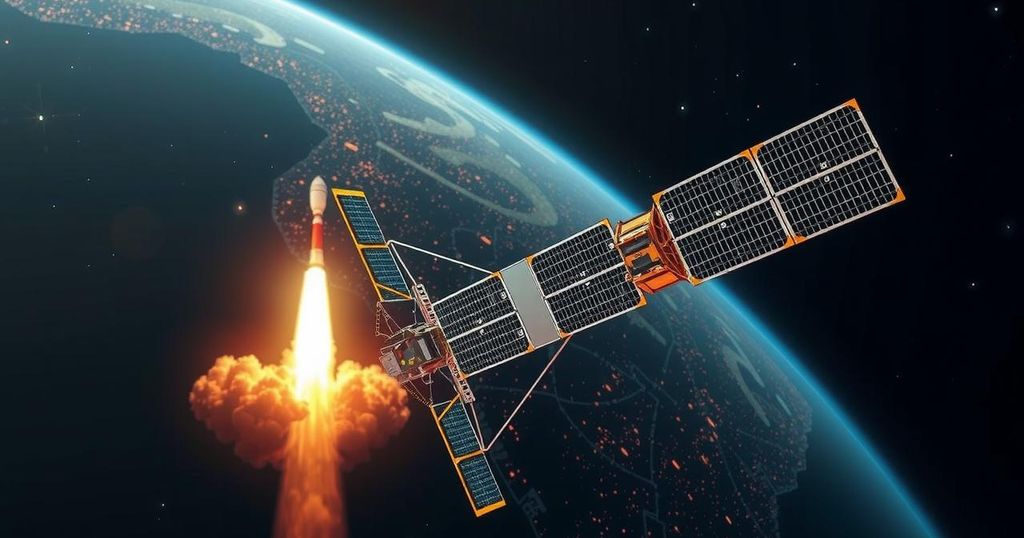Africa is experiencing a surge in satellite launches, with 17 nations having deployed over 60 satellites. Senegal’s GaindeSAT-1A exemplifies the growing trend of technological independence in the region, despite the absence of local launch facilities. The declining costs of satellite technology and the need to address climate challenges drive this increasing activity, although many nations remain dependent on foreign expertise and partnerships.
On August 16, a significant milestone for African space exploration was marked with the launch of 116 satellites, including Senegal’s first satellite, GaindeSAT-1A. This CubeSat will facilitate earth observation and telecommunications, exemplifying Senegal’s pursuit of technological autonomy. The decreasing costs of satellite launches have increasingly enabled smaller African nations to enter the space sector, with 17 countries having launched over 60 satellites to date. However, despite this progress, Africa lacks its own launch facilities, leading to a reliance on foreign technology and partnerships, which can complicate control over vital data and resources. Kwaku Sumah, founder of Spacehubs Africa, emphasizes the importance of independent satellite development for better data management. Such technology can offer crucial advantages in addressing agricultural management and disaster preparedness related to climate change. However, sentiments persist that space exploration is perceived as an elite pursuit in Africa, as articulated by Jessie Ndaba from Astrofica Technologies. Sarah Kimani of the Kenyan Meteorological Department highlights the need for timely satellite data in monitoring extreme weather conditions, noting the benefits of collaboration with international satellite agencies. The contention remains that many African nations still depend on external expertise, posing challenges to establishing a robust local space industry. Yet, there is optimism regarding the future of African space programs. Potential developments include enhancing existing facilities like the Luigi Broglio Space Center, which may once again play a vital role in launch operations. As nearly 80 satellites are in development, African nations are poised for an exhilarating future, navigating a rapidly evolving landscape in space technology.
The surging interest in satellite launches across Africa reflects not only a technological advancement but also a critical step toward independence in space capabilities. As nations like Senegal demonstrate their capacity for satellite development, the continent is forging a path toward greater self-sufficiency. This trend is fueled by a decline in launch costs and the increasing accessibility of space technology. Nonetheless, significant challenges remain due to a lack of local infrastructure and the continued reliance on foreign partnerships for technical support.
In summary, Africa stands on the brink of a space exploration renaissance, with numerous nations launching satellites to meet their unique needs. However, the continent must address its challenges, particularly the dependency on foreign technology and the absence of local launch facilities. The continued development of indigenous space capabilities is vital for empowering African nations to effectively respond to climate challenges and enhance communication technology. The increased activity in this sector heralds a promising outlook for Africa’s future in space.
Original Source: www.bbc.com







